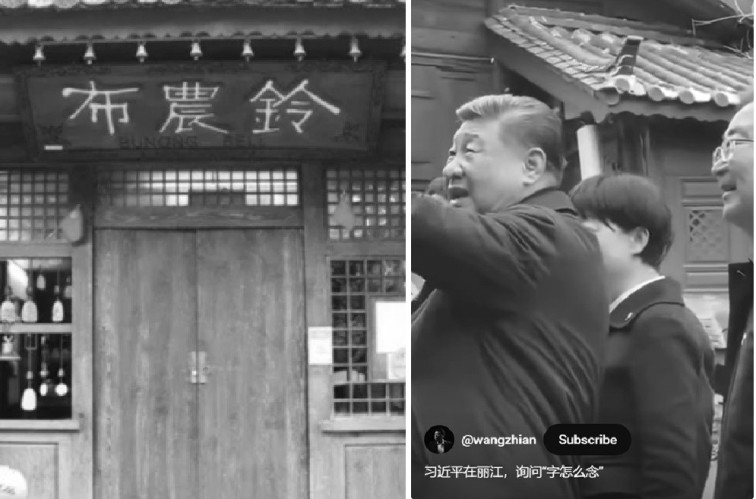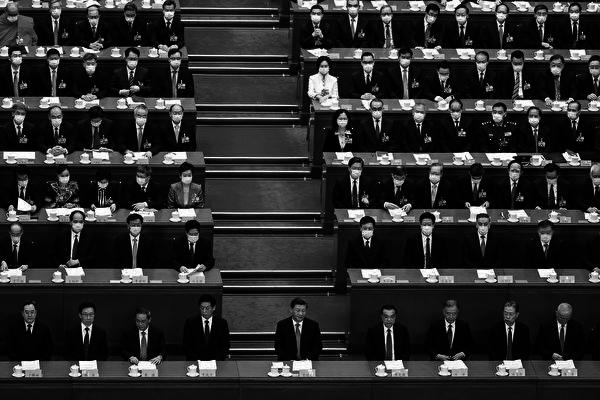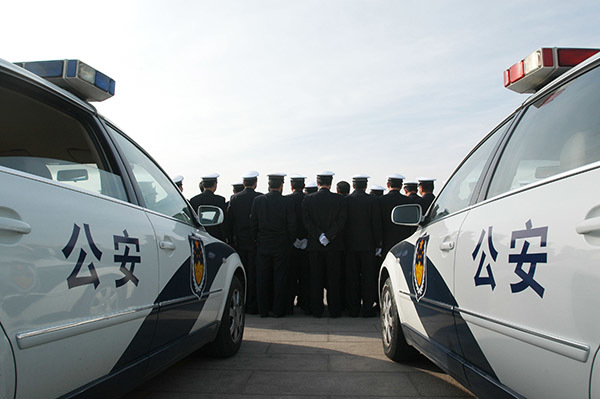"That closed-door meeting in Russia that sent chills down Zhang Youxia’s spine"(Screenshot from video)
[People News] This is an extremely politically sensitive exposé, involving inner-party power struggles within the Chinese Communist Party (CCP), strategic interactions with Russia, and the Taiwan Strait situation...
According to the Jiang Feng Time video report, on May 16, what appeared to be an ordinary international interview article was posted on the homepage of Observer Network. The author was none other than Alexander Dugin, Putin’s top adviser and the "geopolitical wizard" of Russia. In the interview, Dugin made a chilling remark: "Reunifying Taiwan by force cannot be delayed any longer—we must not repeat the mistake of Ukraine. Acting too early is painful, but acting too late is fatal." To outsiders, this may seem like typical ultra-nationalist “wolf warrior” rhetoric. But insiders—especially the seasoned political veterans in Zhongnanhai—immediately saw through it: this wasn’t a suggestion; it was a debt collection notice.
If the signal had come with Xi Jinping’s blessing, what would you expect to see? Xinhua would have immediately reprinted the article, CCTV and PLA Daily would launch themed propaganda, Foreign Ministry spokespeople would echo the sentiment, the Cyberspace Administration would push it up the hot search list, the Taiwan Affairs Office would chime in, and the military would begin corresponding exercises.
But what actually happened? The article stayed up for three days and then was quietly taken down. Official media fell completely silent. The military made no moves. Xi Jinping himself said not a word and showed no sign of response. What does that imply?
This wasn’t Xi issuing a signal—this was Putin demanding an answer. From whom? From the General Secretary who had just returned from Russia on May 10.
Dugin was talking about attacking Taiwan, but every word was aimed at Beijing’s silence and Xi’s hesitation. "Are we still coordinating? Are you still honouring our secret deal? We’re out here fighting a war, and you’re acting like nothing happened—what’s going on?"
This wasn’t mere geopolitical talk—it was political blackmail, a great power ultimatum, a way for Putin’s inner circle to test and pressure the CCP. And who saw the article first? Not the Taiwan Affairs Office. Not People’s Daily. It was Zhang Youxia. When Zhang saw the words “Taiwan cannot be delayed,” he flinched. His mind flashed back to November 8, 2023, and a certain closed-door meeting in Moscow that had chilled him to the bone.
That day, Zhang visited Russia in his capacity as Vice Chairman of the Central Military Commission (CMC), and was received by Putin with high honours. The contents of the public meeting were mundane—military cooperation roadmaps for 2024–2025, satellite compatibility, joint drills, hypersonic tech, and shared laboratories. But what made Zhang break into a cold sweat came after dinner, when Putin said to him in private: “Thank you to our Eastern friends for your strategic support during these special times. At the crucial moment, we will firmly support you on the Taiwan issue.”
This wasn’t polite diplomatic fluff—this was a strategic deal with conditional reciprocity. Zhang immediately understood: this cooperation wasn’t just about tech—it had escalated into geopolitical linkage, battlefield coordination, and political hostage-taking.
The problem? At that time, China was not prepared. Less than half of Russia’s promised tech had been delivered. Much of it was still in testing. The PLA had no unified decision, and there was no authorisation for military deployment. Worse yet, this was never discussed in the CMC, the Politburo had not approved it, and the Foreign Ministry knew nothing. In short, Zhang realised for the first time that Xi had unilaterally made a wartime promise—this was a serious overreach of authority and a strategic betrayal of China’s system. This wasn’t a small issue.
Zhang had no proof at the time and didn’t dare speak up. He quietly told a few close senior colleagues: “I suspect that man made a promise he should never have made.” No one responded—the topic was too explosive.
Now, with Dugin’s article calling out “Taiwan cannot wait,” the spotlight was once again shining on that verbal commitment made two years ago, forcing the CCP to respond. Zhang Youxia could no longer hesitate. He knew this was a moment to preserve the Party—he had to defuse the bomb. The CCP could not be destroyed by the actions of one man.
Zhang formally reported what he heard in Moscow in 2023 to a select group of retired CCP elders in Zhongnanhai. According to insiders, Zhang’s report did not make conclusions, but objectively stated three facts:
Putin did indeed mention “our Eastern friends taking action at a critical time.”
This type of statement had never been discussed collectively in the military, nor had it gone through the CMC decision process.
To this day, no official meeting records or diplomatic notes confirm such an arrangement.
Once the report reached the Party elders, the mood in Zhongnanhai grew tense. This was no longer just a diplomatic gaffe—this was a high-risk sign of a possible secret military promise, made by bypassing the institutional process. The elders knew that if this went on, it could either destroy their enemy or blow up the entire system.
According to insiders within the system, an emergency closed-door meeting was swiftly convened at a certain location in Beijing. The attendees did not include current members of the Politburo Standing Committee, and no media coverage was allowed. Only a small number of elder-generation core figures who still wield significant influence were present. The meeting did not reach any formal conclusions, but a highly restrained consensus was formed, sufficient to address the current situation.
The current circumstances are extremely sensitive, involving China–Russia relations, external strategic commitments, and the legitimacy of internal party procedures. If the leader’s position were handled rashly, the resulting shockwave would far exceed that of the Bo Xilai incident. The current top leader comes from a “red-bloodline” and symbolises the regime’s continuity; removing him outright could lead to the collapse of the CCP.
As such, the post-meeting consensus circulating internally included these key points:
-
Do not announce a resignation;
-
Do not publicly criticize;
-
Make every effort to prevent outsiders from detecting any shift in Beijing’s power structure.
Evidence of this shift surfaced quickly: The People’s Daily front page no longer features headlines like “General Secretary Xi Jinping’s Important Speech.” Instead, phrases such as “The Central Committee attaches great importance,” “The Party Central Committee has pointed out,” and “According to unified deployment”—language implying collective leadership—have taken their place. In Xinhua’s official press releases, the previously standard line—“Under the guidance of Xi Jinping Thought on Socialism with Chinese Characteristics for a New Era”—was suddenly replaced overnight with “Guided by Marxism-Leninism,” signalling a reversion to slogans associated with collective party leadership.
Even more revealing: The Central Propaganda Department had planned to release a major internal educational text in June 2025, titled “Study Guide to Xi Jinping Thought on the New Era · 2025 Revised Edition.” The manuscript was complete, the cover printed, and half the approval process done. Suddenly, the entire project was frozen indefinitely. The official excuse? “The material still needs supplementing.” But insiders knew: nobody dared sign off on it. Why? Because the revised version included detailed positions on Taiwan, the global power shift, and strategies toward Russia and the U.S., if published now, it would be tantamount to declaring: “We are getting ready for war.”
And that is exactly the scenario that powerful elders and Zhang Youxia most want to avoid.











News magazine bootstrap themes!
I like this themes, fast loading and look profesional
Thank you Carlos!
You're welcome!
Please support me with give positive rating!
Yes Sure!